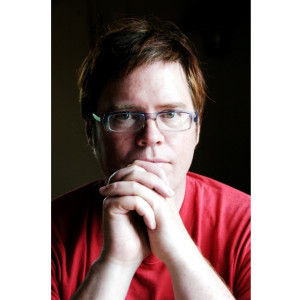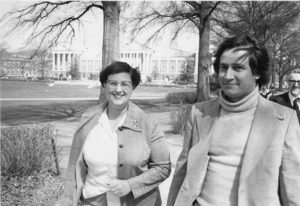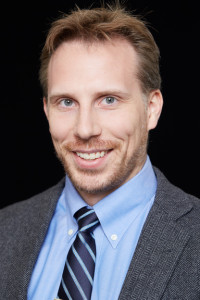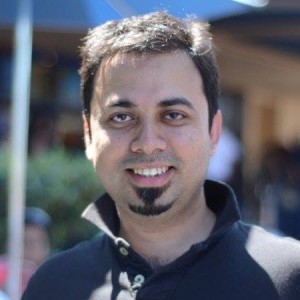This past weekend, trailblazing computer scientist Jean Sammet passed away at the age of 88. I learned this news through emeritus colleague Marv Zelkowitz who lives in the same retirement community that Jean did. He saw the notice of her passing over the weekend on a community bulletin board. (There’s an interesting story about this; see the end of this post!)
Category Archives: Scientists
POPL’17 in Paris: Some highlights
 Last week I attended the 44th ACM SIGPLAN Symposium on Principles of Programming Languages (POPL 2017). The event was hosted at Paris 6 which is part of the Sorbonne, University of Paris. It was one of the best POPLs I can remember. The papers are both interesting and informative (you can read them all, for free, from the Open TOC), and the talks I attended were generally of very high quality. (Videos of the talks will be available soon—I will add links to this post.) Also, the attendance hit an all-time high: more than 720 people registered for POPL and/or one of its co-located events.
Last week I attended the 44th ACM SIGPLAN Symposium on Principles of Programming Languages (POPL 2017). The event was hosted at Paris 6 which is part of the Sorbonne, University of Paris. It was one of the best POPLs I can remember. The papers are both interesting and informative (you can read them all, for free, from the Open TOC), and the talks I attended were generally of very high quality. (Videos of the talks will be available soon—I will add links to this post.) Also, the attendance hit an all-time high: more than 720 people registered for POPL and/or one of its co-located events.
In this blog post I will highlight a few of my favorite papers at this POPL, as well as the co-located N40AI event, which celebrated 40 years of abstract interpretation. Disclaimer: I do not have time to describe all of the great stuff I saw, and I could only see a fraction of the whole event. So just because I don’t mention something here doesn’t mean it isn’t equally great.[ref]I also attended PLMW just before POPL, and gave a talk. I may discuss that in another blog post.[/ref]
Filed under Program Analysis, Research, Scientists, Semantics, Software Security, Types
Interview with Matt Might, Part 2
This post is the second part of my March 10th interview of Matt Might, a PL researcher and Associate Professor in the Department of Computer Science at the University of Utah.
In Part I, we talked about Matt’s academic background, his PL research (including his favorite among the papers he’s written), and his work on understanding and treating rare disease, which began with the quest to diagnose his son Bertrand, and has led to a role in the President’s Initiative on Precision Medicine.
In this post, our conversation continues, covering the topics of blogging, privacy, managing a crazy schedule, and looking ahead to promising PL research directions. Continue reading
Interview with Matt Might
This post presents an interview I did on March 10th, 2015, with Matt Might, a PL researcher who is an Associate Professor in the School of Computing at the University of Utah.
Matt has made strong scientific contributions to the field of programming languages, and he has done much more. He maintains an incredibly popular blog on wide-ranging topics (13 million pageviews since 2009 on topics from abstract interpretation to how to lose weight to how to be more productive). He has also become deeply committed to supporting people with rare diseases, including his own son, Bertrand, who was the first person diagnosed with NGLY1 deficiency. His work on rare disease propelled him to the White House: He met the President on January 31st, 2015, and he took a position in the Executive Office of the President to accelerate the implementation of the Precision Medicine Initiative on March 21st.
We had an engaging conversation covering all of these topics. It is too long for one post, so this post is the first of two. Continue reading
Interview with Facebook’s Peter O’Hearn
 In this post, I interview Peter O’Hearn, programming languages professor, researcher, and evangelist. Peter now works at Facebook on the Infer static analyzer, which was publicly released back in June 2015. In this interview we take a brief tour of Peter’s background (including his favorite papers) and the path that led him and Infer to Facebook. We discuss how Infer is impacting mobile application development at Facebook, and what Peter hopes it can achieve next. Peter also shares some lessons he’s learned at Facebook regarding PL research and the sometimes surprising impact PL researchers can and are having on industrial software development.
In this post, I interview Peter O’Hearn, programming languages professor, researcher, and evangelist. Peter now works at Facebook on the Infer static analyzer, which was publicly released back in June 2015. In this interview we take a brief tour of Peter’s background (including his favorite papers) and the path that led him and Infer to Facebook. We discuss how Infer is impacting mobile application development at Facebook, and what Peter hopes it can achieve next. Peter also shares some lessons he’s learned at Facebook regarding PL research and the sometimes surprising impact PL researchers can and are having on industrial software development.
Filed under Interviews, PL in practice, Program Analysis, Scientists
Alan Turing: Pioneer of the Information Age
The Imitation Game, the biopic about the life of Alan Turing, just won the Oscar for best adapted screenplay. While I enjoyed the film, and I’d recommend it, I agree with NPR’s Linda Holmes’ wry assessment that The Imitation Game was ‘a film that was “adapted” from a book about Alan Turing, and quite liberally adapted from reality.’
While the story of the film is a moving one (you could not help but be moved by screenwriter Graham Moore’s acceptance speech), I am saddened that so much good material was left on the table. If this was our big chance to share Turing’s amazing accomplishments with the world, a lot more could have been said, and some things could have been said better. Christian Caryl, writes that the film was A Poor Imitation of Alan Turing, while Alex von Tunzelmann goes so far as to suggest slander. A visually presented fact-checking by the Washington Post’s Stephanie Merry similarly finds as much fiction as fact.
To remedy these problems, I recommend you not stop with the film, but use it as a springboard to Prof. Jack Copeland‘s book, Turing: Pioneer of the Information Age.
Filed under Book Reviews, Scientists
Interview with Avik Chaudhuri
This is the first in a series of interviews we plan to do with programming languages researchers working in industry.
In this post, I interview Facebook’s Avik Chaudhuri, who has worked on language implementations at Facebook and Adobe (and is an alumnus of our group here at PLUM). Thanks, Avik, for taking the time to do this!
The interview is broken into three parts: Background; Facebook’s new language, Flow; and reflections on the value of a PhD and the challenges of research in industry. Continue reading
Filed under Interviews, PL in practice, Scientists, Types
Is POPL really one research community?
I was recently in Princeton for the program committee meeting of the POPL conference. It was a lot of fun. David Walker, the program chair, offered excellent leadership, and I am excited about the program that we ended up selecting. I look forward to seeing many of you at the conference (Mumbai, January 2015).
POPL is a broad conference, and you really feel this when you attend its PC meeting. You inevitably discuss papers with fellow PC members whose backgrounds are very different from your own. Of the papers discussed, there are many that use techniques about which you only have rudimentary knowledge.
One thing I kept wondering at the meeting was: is POPL really one research community? Or is it really a union of disjoint sets of researchers who work on different themes within POPL, for example types or denotational semantics or abstract interpretation? Perhaps researchers in these sub-communities don’t really work with each other, even if they share a vision of reliable software and productive programming.
The question was bugging me enough that I decided to try to answer it through an analysis of actual data. The results I found were intriguing. The takeaway seems to be that POPL is indeed one family, but not a particularly close one. Continue reading
Filed under Process, Research, Scientists
Remembering Professor Susan B. Horwitz
[Guest poster Thomas Ball of Microsoft Research remembers his Ph.D. advisor, Professor and programming languages researcher Susan Horwitz, who recently passed away. –Mike]
Filed under Program Analysis, Scientists




